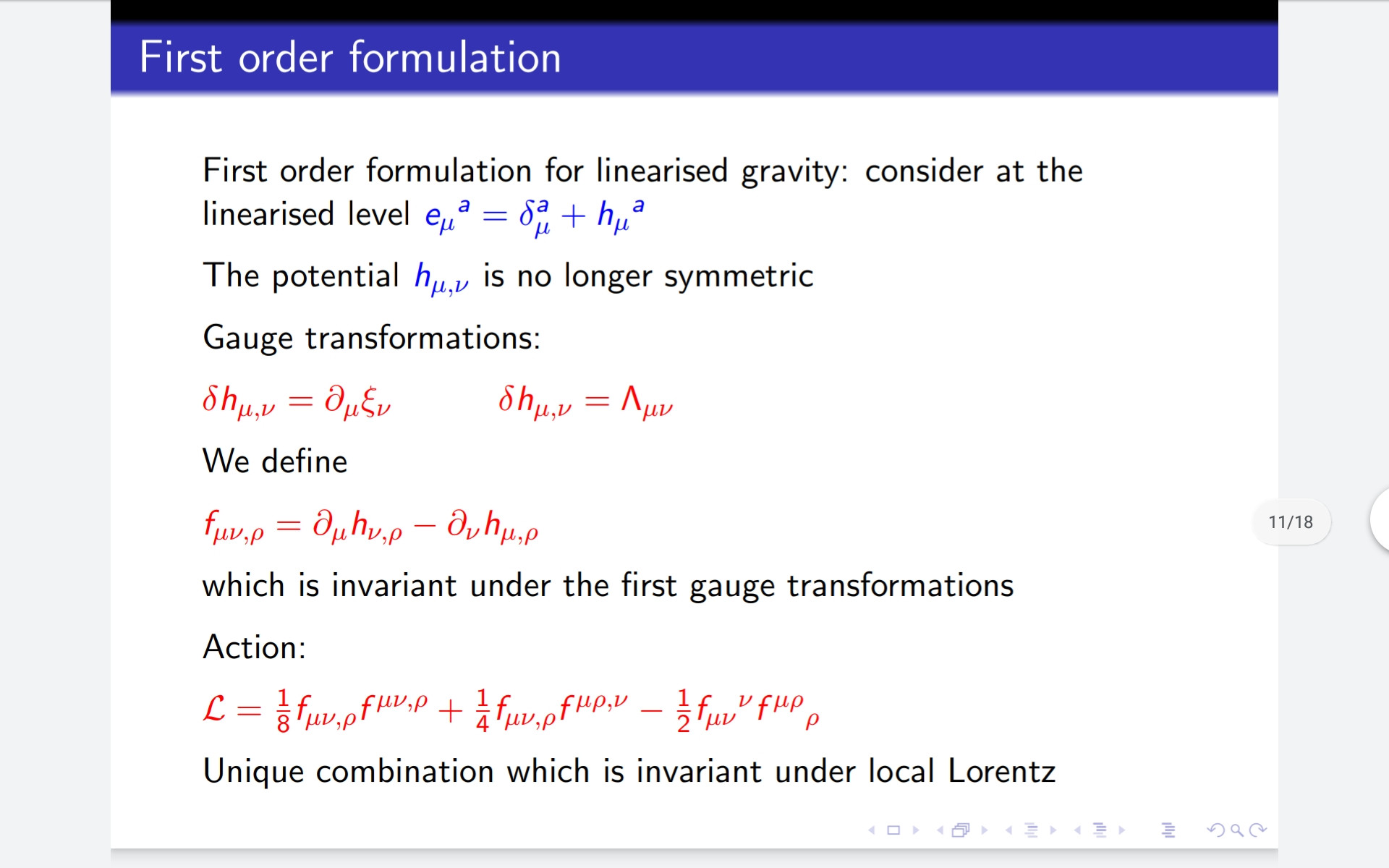Action for linearized gravity is well-known, see for example David Tong: Lectures on General Relativity:
$\mathbf{The\;Fierz-Pauli\;Action}$
The linearised equations of motion can be derived from an action principle, the first written down by Fierz and Pauli,
$$\begin{equation}\tag{5.8}S_{FP}\!=\!\frac{1}{8\pi G}\!\int \!d^{4}x \Big[\!-\!\frac{1}{4}\partial_{\rho}h_{\mu\nu}\partial^{\rho}h^{\mu\nu}\!+\!\frac{1}{2}\partial_{\rho}h_{\mu\nu}\partial^{\nu}h^{\rho\mu}\!+\!\frac{1}{4}\partial_{\mu}h\partial^{\mu}h\!-\!\frac{1}{2}\partial_{\nu}h^{\mu\nu}\partial_{\mu}h\Big]\!\end{equation}$$ This is the expansion of the Einstein-Hilbert action to quadratic order in $h$ (after some integration by parts). (At linear order, the expansion of the Lagrangian is equal to the linearised Ricci scalar $(5.4)$ which is a total derivative.)
$$-200-$$
This action is invariant under diffeomorphism transformation: $$ \delta h_{\mu\nu} =\partial_\mu a_\nu + \partial_\nu a_\mu $$
Is this action invariant under local Lorentz transformations?
How construct local Lorentz invariant gravity action?

